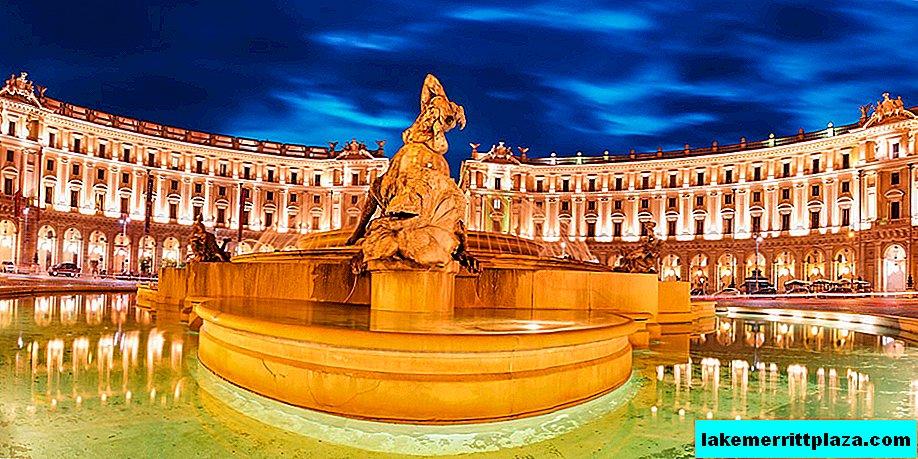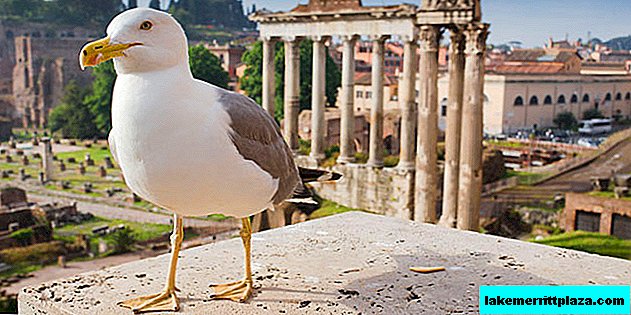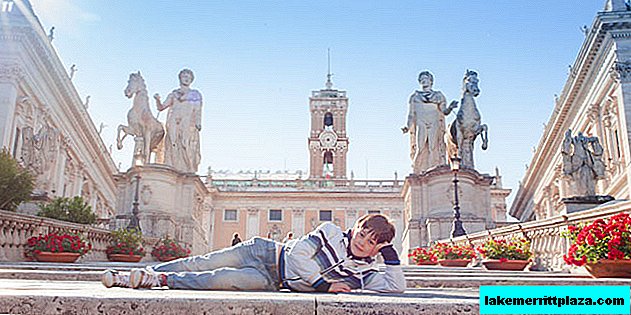Near the Plebiscite square in Naples, there is an Italian lyric temple, the symbol of the city, the oldest in Europe, majestic and proud - the San Carlo Opera House. Built in 1737, it is 41 years older than the famous Milanese La Scala, and from La Fenice in Venice - for 55 years.
Neapolitans are very proud of their theater. After hundreds of years, his traditions remain unbreakable, and only stars of the first magnitude work on the stage. BlogoItaliano will tell about what the theater is remarkable for, where to see its repertoire and how to get to performances in this article.
Theater History
The idea to give the city a new modern and advanced theater, which would become a symbol of royal power, belonged to the Neapolitan king Charles III, the representative of the Bourbon dynasty.
Everything happened quickly enough: the architect Giovanni Antonio Medrano developed the project and immediately began construction, which was completed in record time - after eight months, a new chic theater appeared in Naples.
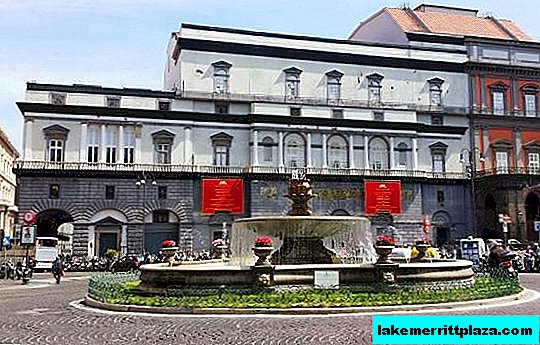
After hundreds of years, his traditions remain unbreakable.
The opening took place on the birthday of the king - November 4, 1737 and aroused admiration among the refined public. The sizes (hall for 3 thousand seats), expensive decoration, interiors in blue and gold tones and perfect acoustics were staggering. An underground corridor connected the opera with the Royal Palace, and the monarch visited the personal box directly from the house, without going outside.
However, this Italian theater could not escape the fire. San Carlo burned in 1816, but it was restored incredibly quickly - the very next year the theater was again open to the public.
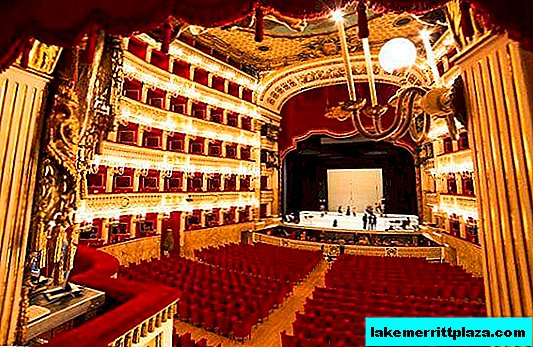
To date, the San Carlo Theater has 1,386 seats
This time, the French writer Stendhal was present at the opening of the San Carlo Theater in Naples, according to which, life without opera did not make sense to him.
Stendhal later writes about his delight in visiting the theater in the book “Rome, Naples and Florence”: “In the first instant it seemed to me as if I had been transferred to the palace of some eastern ruler. My eyes are blinded, my soul is full of admiration. Everything breathes with unusual freshness and at the same time full of grandeur, and these two things are not so easy to combine ... "
Throughout its long history, the interior of San Carlo has changed several times. In 1844, there was a certain change in decor and color scheme, in 1943 the restoration after the bombing, in 2008 - updating and serious reconstruction, which cost the state more than 60 million euros.
Great masters on a great stage
At all times, only the best masters worked on the stage of San Carlo - composers, musicians, vocalists and conductors. The mere fact that at one time the theater was directed by two of the greatest composers Gioacchino Rossini and Gaetano Donizetti speaks for itself.
Here the public first applauded the premieres of operas by Johann S. Maira ("Partenope's Dream", "Medea in Corinth"), Gioacchino Rossini ("Moses in Egypt", "Elizabeth, Queen of England", "Virgin of the Lake"), Gaetano Donizetti ("Lucia de Lammermoor "," Polievkt "," Roberto Devereux "), Giuseppe Verdi (" Louise Miller "and" Alzira ") and many others.
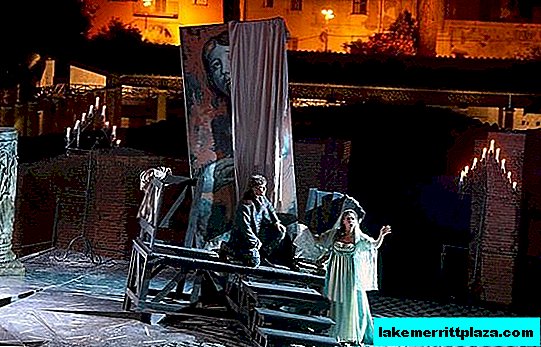
Opera "Tosca" by Giacomo Puccini on the stage of San Carlo
The best vocalists shone on the stage of the theater in Naples, whose names are forever inscribed in world music history: Enrico Caruso, Giuseppe Di Stefano, Maria Callas, Mario Del Monaco, Franco Corelli, Toti dal Monte, Giacomo Lauri-Volpi, Montserrat Caballe, Luciano Pavarotti, Placido Domingo, Jose Carreras et al.
It is impossible to list the names of all the great musicians and conductors who wrote the glorious history of the theater: Arturo Toscanini, Igor Stravinsky, Gabriel Santini, Ferenc Fricay, Claudio Abbado, Ferruccio Busoni, Sergiu Chelibidake, Wilhelm Furtwengler, Vladimir Ashkenavropi and Rost Ashdislavazov, dr.
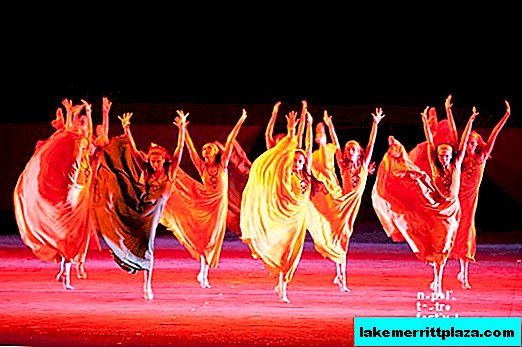
Performance of the theater corps de ballet
The San Carlo scene also remembers the performances of Russian and world ballet stars. Such as Rudolf Nuriev, Ekaterina Maksimova, Vladimir Vasiliev, Natalia Makarova, Mikhail Baryshnikov, Vladimir Derevyanko. And the director Yuri Lyubimov, together with the theater artist David Brodsky, staged Mussorgsky’s opera Salambo here in 1983.
Museum of Music MeMUS
October 1, 2011 in the premises of the Royal Palace opened "MeMUS" - a multimedia museum and historical archive of the San Carlo Theater.
On the exhibition area, almost 300 square meters. meters, equipped with the latest technology, housed a virtual 3D gallery, a hall for events with 50 seats and a bookstore where you can buy books about the theater, concert disks with audio and video recordings.
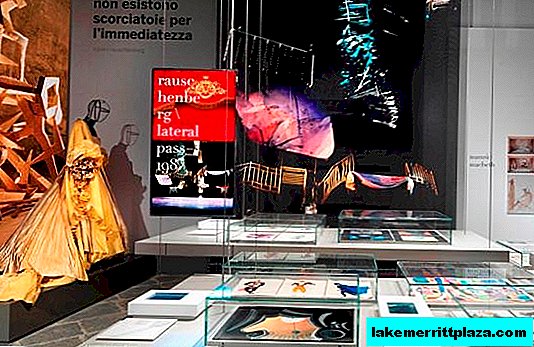
MeMUS - the multimedia museum and historical archive of the San Carlo Theater
The cost of an excursion to the MeMUS museum is € 6, for students - € 3. When you purchase 2 excursions at once: both to the theater and the museum, the price of a ticket to MEMU will cost half the price - only € 3.
The store in MEMU is open from Thursday to Tuesday from 9.00 to 17.00.
Tours and tickets to the San Carlo Theater
The Naples Opera House can be visited with a guided tour, which runs here daily in Italian and English. Duration - 45 minutes, cost - € 9.
The tour includes visits to the visual and historical halls, the Royal Lodge, backstage and other theatrical rooms; Taking pictures is allowed.
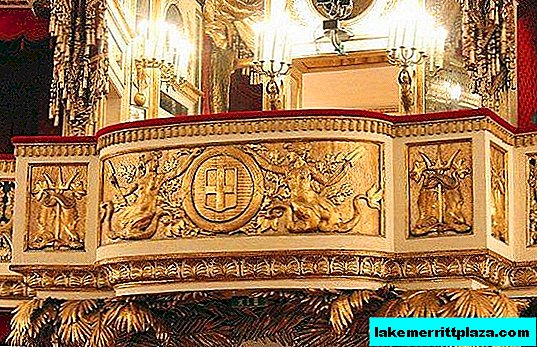
In the Royal box of the theater you can take a picture as a souvenir
The tour can be accessed daily from Monday to Saturday at 10:30, 11:30, 12:30, 14:30, 15:30 and 16:30. There are no excursions on Sundays and public holidays.
San Carlo Theater Address and How to Get
Address: Teatro di San Carlo: via San Carlo, 98 / F
You can get:
- by metro, 1st line, get off at Toledo station
- by cable car, get off at Augusteo station
By bus
- from the central bus station, bus number R2, get off at the San Carlo stop
- by bus number R3, number C82 to the stop San Carlo
- Take bus number R4, get off at Medina station
- From Capodichino airport, Alibus bus stop, get off at Porto stop. The theater is located 500 meters from the port, so it is not difficult to find.
The theater does not have its own parking, however, if there is a ticket to the theater, discounts are provided for parking spaces located near the theater.
Repertoire and tickets to the San Carlo Theater in Naples
Going to the San Carlo Theater, you should know that the operas here are performed in the original language, and the subtitles are in Italian. You can familiarize yourself with the repertoire and plot in advance on the theater’s official website.
When preparing for the performance, remember the dress code: it is customary to dress elegantly in Italian theaters, but if it comes to the premiere, an evening dress and a dark suit are required.
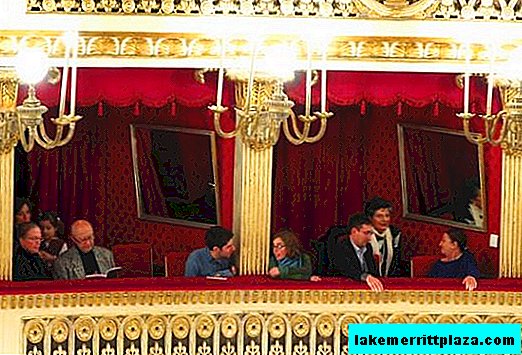
To monitor the reaction of the monarch, the theater lodges are equipped with mirrors
It is interesting
- In the intermission, use the opportunity to go to the Royal Box and take a photo for memory
- There are hooks for outerwear in the boxes: you don’t have to leave the show early to take outer clothing from the wardrobe
- If finances allow, it is better to take places in the box closer to the center, otherwise part of the scene may not be visible
- The San Carlo Theater has an elevator, which is convenient for older people



